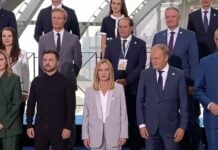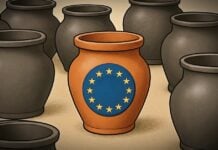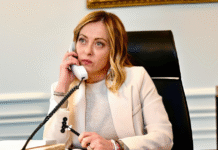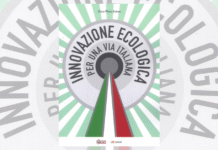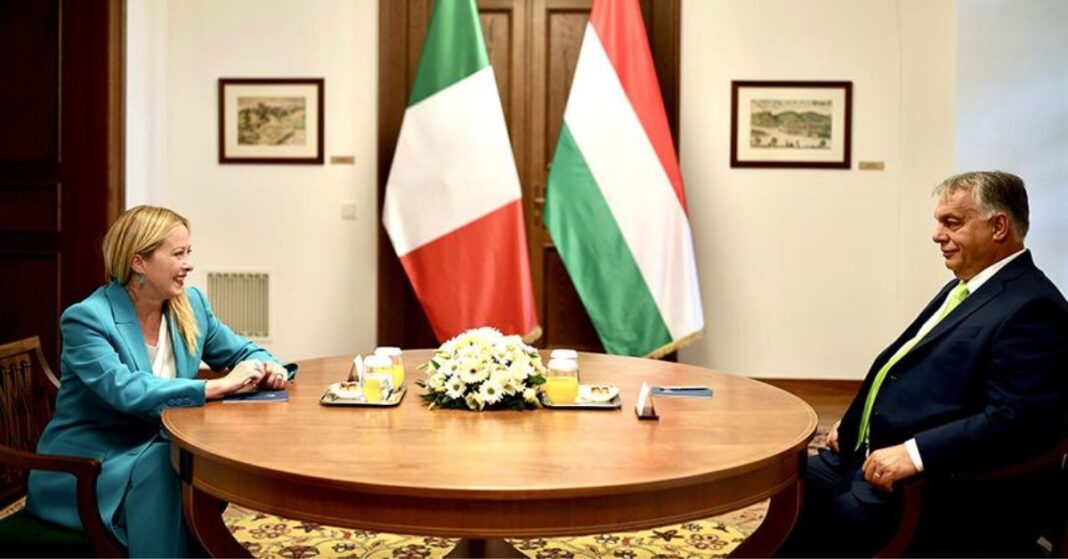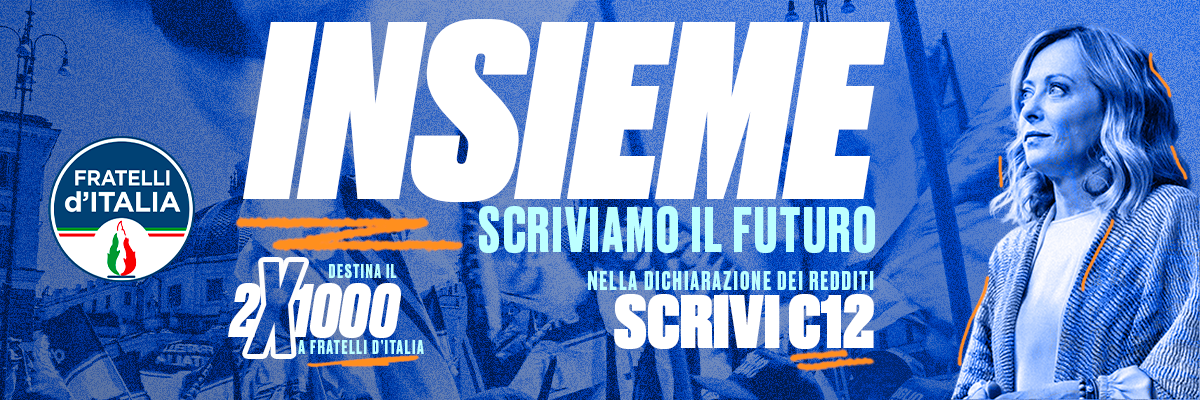The bond of friendship uniting Hungarian Prime Minister Viktor Orbán and Prime Minister Giorgia Meloni represents an important and well-established European association over the years. There has been no lack of understanding between the two over the years, despite the fact that they both belong to two different parliamentary coalitions in the EU.
Today, at the Tea Workshop in Cernobbio, Orbán had some benevolent words for Meloni: ‘having the same cultural background plays a more important role than in the past’ and again ‘she is not just a political colleague but a Christian sister’. As the Hungarian counterpart pointed out, relations between Italy and Hungary have not had much impact in the European institutions until recently, but now there is a chance for a change. More than necessity, it would be fair to speak of necessity, since the EPP has shown itself to be close to the needs of the left, proving to have a transformist rather than a liberal-democratic matrix.
No limitation therefore seems to be able to undermine the desire to cooperate with our country to oppose the weak logic of a left wing that is increasingly distant from the needs of its citizens and in favour of raising barriers even from an economic and social point of view. The Hungarian prime minister’s statements serve to reassure all those who imagine a right wing that is anything but united. There are those who are waiting for nothing more than to see the various conservative and nationalist groups squabbling in order to take advantage of weakness to assert themselves in the continental political landscape.
Orbán then insisted on the cultural significance of Christianity, both for his country and for Italy, as Christian values represent the Hungarian President himself. So the hope is that for Italy, too, these foundations have a strong moral relevance.
The last meeting between the two took place on 24 June 2024, at which many key issues were discussed, including: the solutions to be found to prevent migration from jeopardising national security and that of those who naively think they can find a better future in Europe. Secondly, demography is another necessary issue to work on, to avoid worrying population declines.
Certainly there are some political differences between Hungary and Italy, among them the commitment to the Ukrainian cause, on which Viktor Orbán is not so convinced. This, however, does not mean that mediation is completely useless; on the contrary, it is precisely the strength of the talks that will strengthen the agreements to find common ground.
In spite of everything, it cannot be said that the Hungarian President does not care about the fate of the conflict between Russia and Ukraine: during the Worskshop Tea, he would attest to the importance of a clarification between Vladimir Putin and Volodymyr Zelensky. Both would be convinced that time could work in their favour. Consequently, it will be necessary to find a mutually valid agreement and, above all, a cease-fire. Preventing the massacre from continuing should be a sticking point for all observers of the conflict.
From a political point of view, this partnership between Meloni and Orbán is worrying for the counterpart of the liberal left, which is compact but at the same time weak, since its only chance of winning over its adversary lies in concordance with the European populars. On the contrary, the patriots ‘ thinking can boast many similarities; all it would take is more dialogue between them to bring down the house of cards on which modernist logics, which really have nothing to do with today’s society, continue to dawn.


